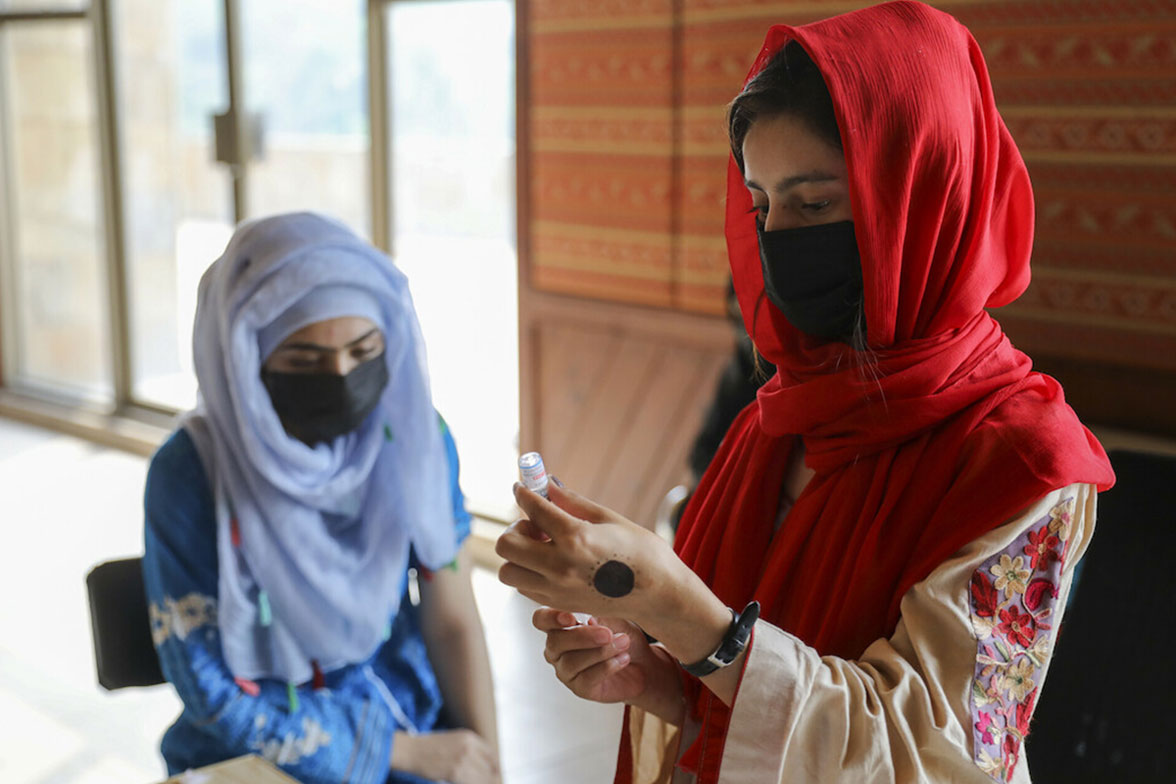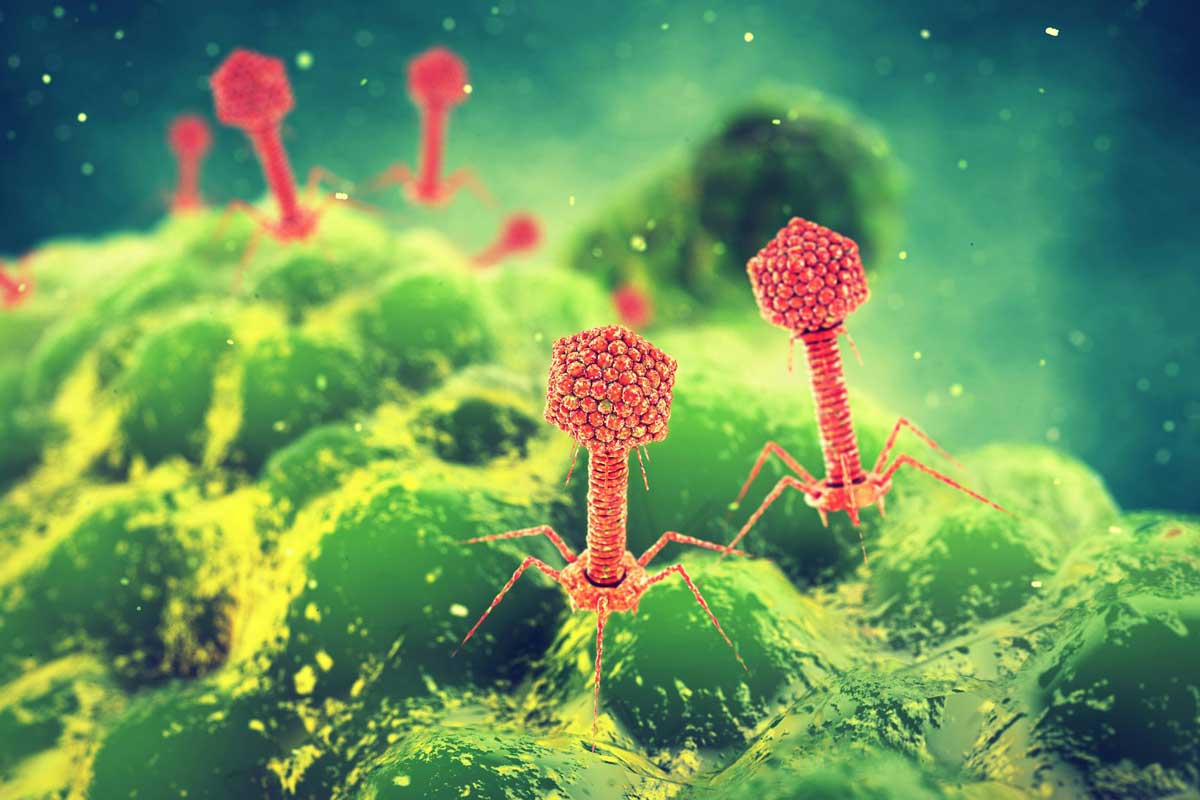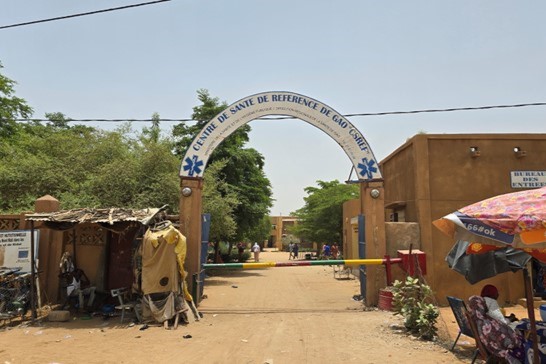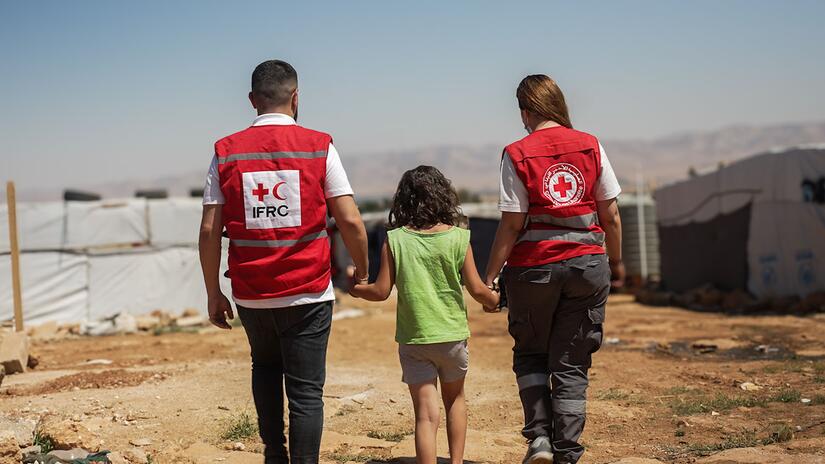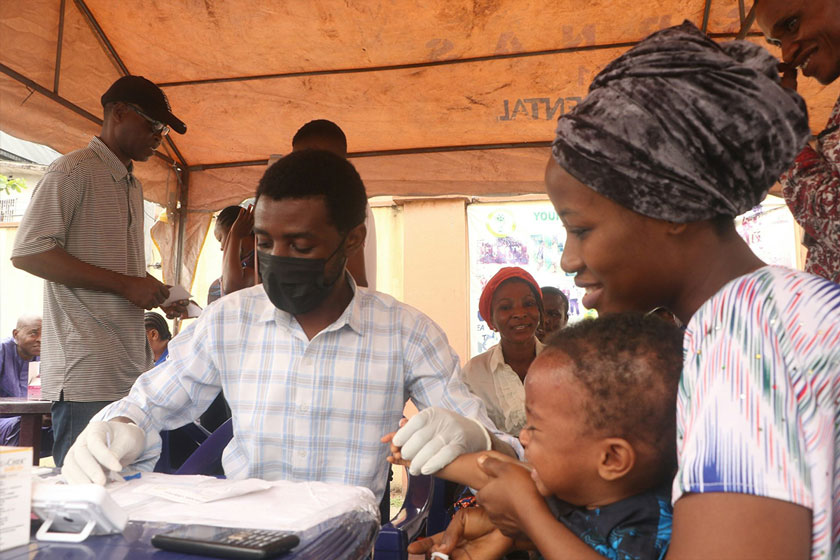Vaccinating in the Indian Himalayas: local governments lead the charge
The Panchayat officials in Bir have played a key role in getting locals and tourists vaccinated against COVID-19.
- 22 March 2022
- 4 min read
- by Pooja Bhatia
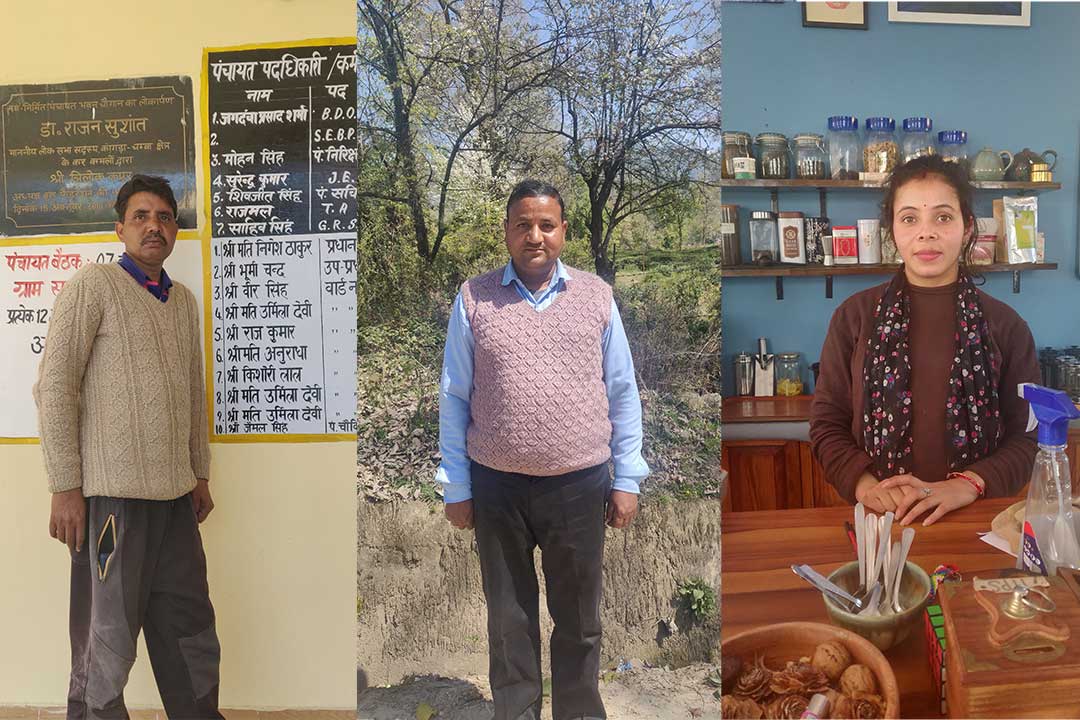
India’s Himachal Pradesh has emerged as the country’s first state to achieve 100% COVID-19 vaccination coverage for its adult population. Surpassing its targets, the state administered a second dose to more than 5,387,000 eligible adults by December 2021. Narendra Modi, India’s Prime Minister, has publicly praised the state’s efforts and encouraged other states to replicate its model.
"The panchayat was instrumental in helping me get vaccinated. I used to get regular WhatsApp updates on the importance of the vaccine and upcoming drives in my ward."
Nestled in the scenic Himalayas of Himachal is Bir, a cosy village 250km from the state’s capital, Shimla, which is known for paragliding and spiritual tourism, and attracts an influx of tourists.
Despite its varied climatic conditions, forested valleys and hilly terrain, the local panchayat (a village-level constitutional body of self-government) in Bir has worked tirelessly along with essential health workers to ensure the robust implementation of necessary COVID-19 protocols on the ground. Thanks to their efforts, vaccines are easily available at the nearest dispensaries and Primary Health Centres (PHCs).
The Bir Panchayat, covering over 700 households and consisting of nine members including the Pradhan (the elected head of the panchayat), organised ward level vaccination drives for locals to get vaccinated. They administered vaccines to between 200 and 300 people per day per ward. The vaccinations for people above 45 years were systematically completed first, followed by those in the 18 to 45 years age bracket.
Have you read?
Joginder Singh, a driver from Bir who has ferried several passengers via road during COVID-19 says, “The panchayat was instrumental in helping me get vaccinated. I used to get regular WhatsApp updates on the importance of the vaccine and upcoming drives in my ward. These were well organised, so I did not have to wait in a queue for long. Getting both my shots on time kept me safe during my road journeys.”
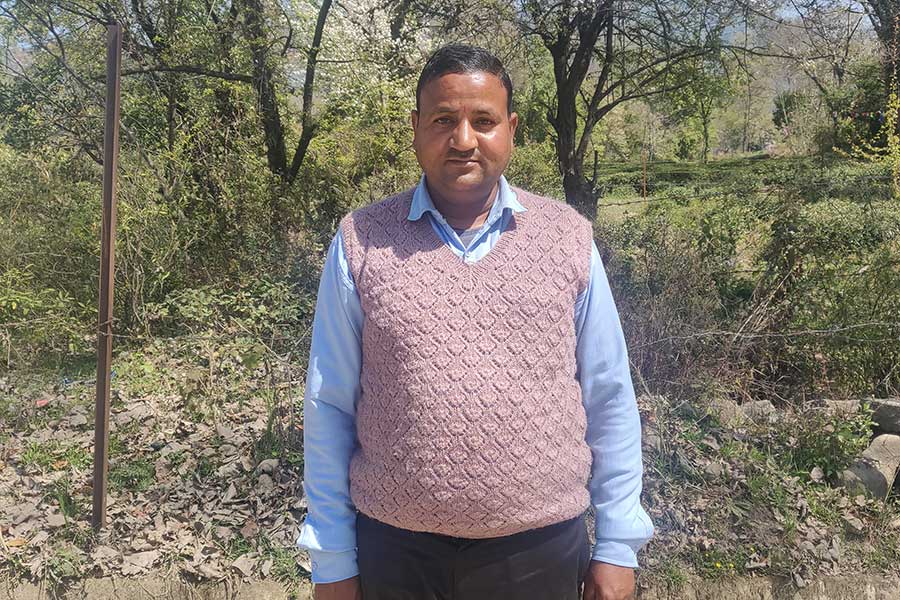
The panchayat members, trained in COVID-19 protocols by district officials early in the pandemic, were able to take measures in curtailing the spread of COVID-19 in their respective wards. They collected fines from people for not wearing a mask and reported errant, non-compliant individuals to the state administration. Furthermore, vaccinations were incentivised by linking them with various facilities.
Efforts by the panchayat included door-to-door village visits, spreading awareness via WhatsApp messages, conducting sanitisation drives, and distributing masks, sanitisers and PPE kits in their wards.
Kishori Lal, a member of Bir Panchayat representing Ward 5, says, “We talked to people during our house visits to allay their fears and concerns. Some people in my ward feared the after-effects of the vaccine. They thought it would lead to memory loss and other ailments. I convinced them by getting vaccinated first.”
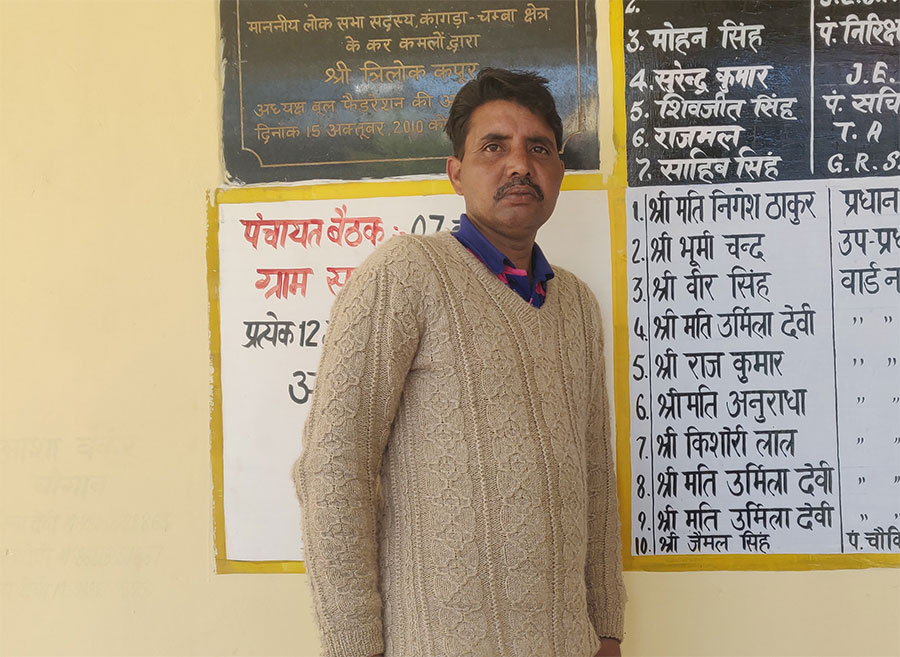
Komal Kumari, who works at Bhoomi, a women-led café and micro-bakery in Bir, affirms that the panchayat members were proactive and approachable, “My colleagues and I, who are locals from nearby villages, were concerned about our health and safety with the outbreak of COVID-19. We were at risk since we work at a popular café frequented by tourists. A panchayat member visited our café and informed us of the drives happening in our area. With his help, we could get vaccinated at the earliest.”
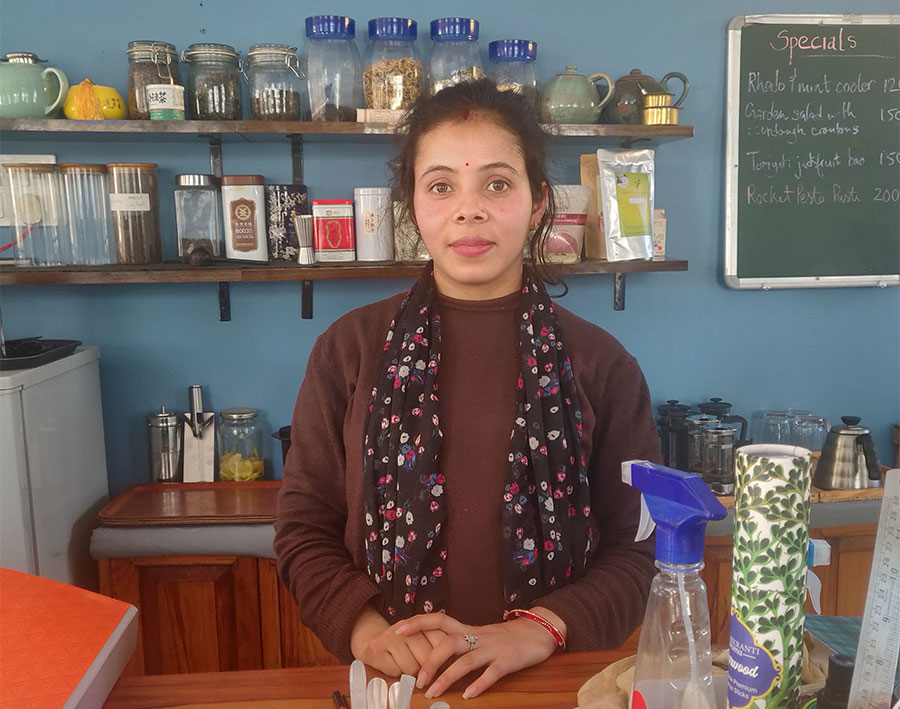
Regulating the entry of tourists in the area, checking for their vaccination certificates, urging them to get vaccinated immediately, and arranging for their COVID-19 tests was another key step towards ensuring safety.
“We worked closely with the ASHA workers, going on joint rounds with them, creating lists of members who needed to be vaccinated, organising distribution and awareness drives, and following up with those who received their shots,” says Kishori Lal.
Panchayat members prompted people to get tested if they were feeling sick, arranged for quicker tests, and helped them understand the reports. They also distributed rations, essentials, fruits and vegetables to the families who were infected by COVID-19.
Savitri, a community member, says, “Panchayat members checked on me when my husband tested positive. They gave us masks and sanitisers. They got us rations and daily supplies. They also followed up on my health after I got vaccinated.”
The panchayat members at Bir are aware of the ongoing risks of the pandemic and are prepared for any future contingency.
“Most of our population is protected against the virus, but our work is not over yet. We are currently focusing on vaccinating our population aged between 15 and 18 years. We are also prepared to roll out the booster dose in the future, if the need may arise,” adds Bir Panchayat member Veer Singh, before heading out for his daily rounds.
More from Pooja Bhatia
Recommended for you
